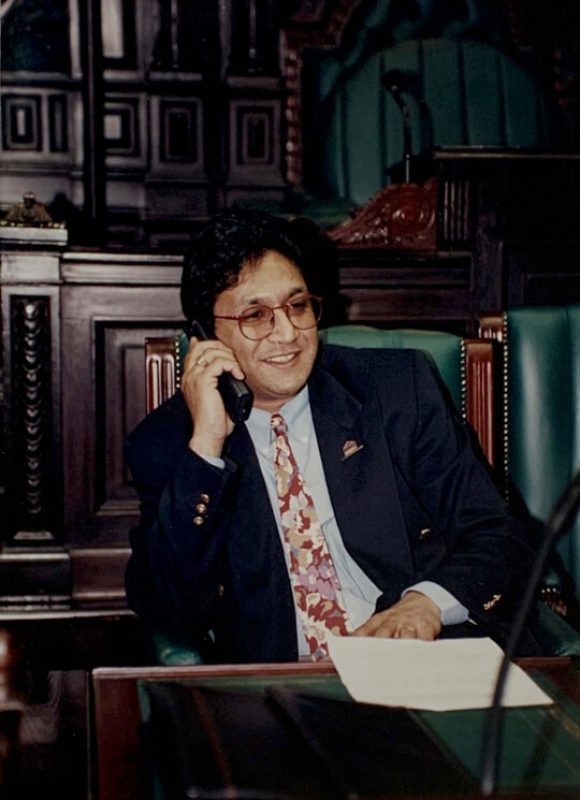PIONEER
Hassen Ebrahim

Lawyer | Writer | Constitutional adviser
Born: 11 November 1957
"The South African people not only had to feel part of the process, but the content itself had to be representative of their views. If the heart of the Constitution can be found in its Bill of Rights, the foundation on which the Constitution would rest, then that would be its legitimacy and its public ownership.”
Who is
Hassen Ebrahim?
Executive director of the Constitutional Assembly and advisor internationally on constitution-making, transitions and negotiations.
Professions
and Roles
Lawyer, author, negotiator, adviser, politician, legislator.
Best Known For
Serving as national coordinator for the African National Congress’ (ANC) Negotiations Commission between 1992 and 1994, and being the Executive Director of the Constitutional Assembly between 1994 and 1996.
Life highlights
- Ebrahim studied Law at the University of Botswana and then the University of Edinburgh. He lived in exile in Botswana for 12 years as a member of the ANC.
- Ebrahim returned to South Africa in 1992 to become national coordinator for the Negotiations Commission for drafting the Interim Constitution and was elected to the Gauteng legislature in 1994.
- Ebrahim acted as the Executive Director of the Constitutional Assembly from 1994 until the end of 1996, and served in the Department of Justice from 1997.
- Ebrahim is now working with the Somali Federal government to plan democratic elections, implement their new constitution, and develop state institutions. He has also been involved with peace processes in Yemen and the Philippines, and acted as a Mediation Expert on the United Nations Mediation Standby Team.
IN THEIR OWN WORDS
“Notwithstanding the electorate’s mandate to draft the Constitution, it was decided that the people’s will needed to be consulted and involved in the process of constitution making. The process had to be made transparent, open and credible … This made it essential to embark upon a programme of public participation. The South African people not only had to feel part of the process, but the content itself had to be representative of their views. If the heart of the Constitution can be found in its Bill of Rights, the foundation on which the Constitution would rest, then that would be its legitimacy and its public ownership.”
– Hassen Ebrahim
IN THE WORDS OF OTHERS
“He is a leading and internationally recognised practitioner, having managed the public outreach dimension of constitution-making for the South African Constitutional Assembly.”
– Nicholas “Fink” Haysom, former chief legal and constitutional adviser during Nelson Mandela’s presidency
Parliament of the Republic of South Africa (2018) Theme Committee Book Series 1-6
